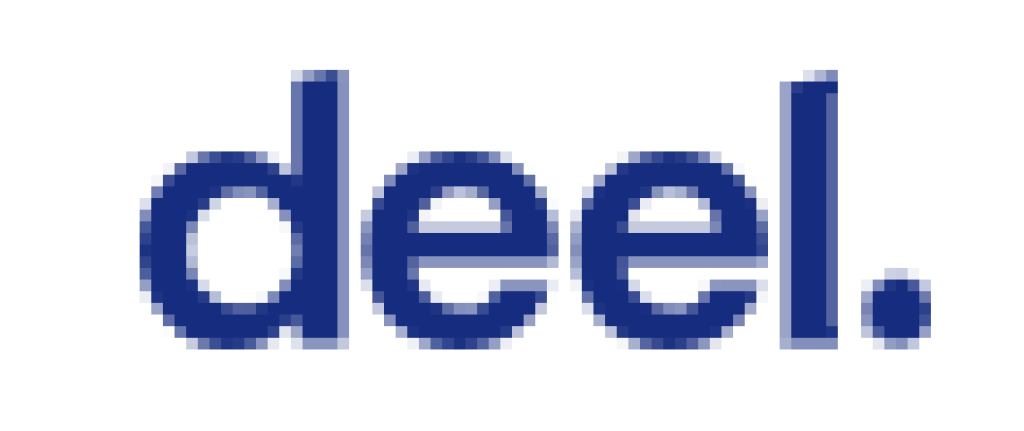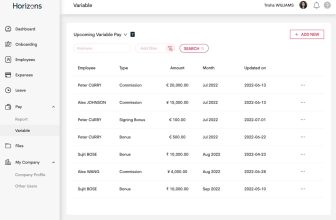In the realm of human resources and global business operations, employers often juggle between traditional payroll services and employer of record (EOR) solutions.
Payroll Services
Payroll entities cater to the direct needs of employers in managing their employees’ salary, tax withholdings, and compliance with local tax laws. Their key offerings encompass:
- Processing employee paychecks
- Calculating tax obligations
- Ensuring accurate tax filings
Employer of Record (EOR)
EOR firms extend beyond payroll to handle diverse administrative responsibilities. In essence, an EOR legally becomes the employer of the client’s workforce, particularly in international contexts. Their expanded services include:
- Onboarding and training employees
- Administering benefits
- Navigating compliance and labor laws
Contrary to EOR, a Professional Employer Organization (PEO) partners with employers through a co-employment arrangement, sharing responsibilities and liabilities of employment.
| Aspect | Payroll Provider | EOR Services |
|---|---|---|
| Primary Focus | Salaries and tax compliance | Full HR suite including legal compliance, benefits, and payroll |
| Legal Liability | Limited to payroll processing | Assumes comprehensive employer responsibilities |
| Employment Model | Employer retains full control of workforce | EOR becomes the legal employer |
| Suitable For | Employers seeking payroll management | Companies expanding internationally needing an HR framework |
What we cover
Key Differences
Professional Employer Organizations (PEOs):
- Co-Employment: Establishes a co-employment relationship where the PEO acts as the employer of record for tax and insurance purposes, but the client company maintains control over the workers’ day-to-day activities.
- HR Department Functions: Offers a suite of HR services beyond payroll, including benefits administration, risk management, and compliance.
- Workers’ Compensation: The PEO provides workers’ compensation coverage as part of their services.
- Employment Liabilities: Shares employment-related liabilities with the client company, mitigating some risks.
Employer of Record (EOR):
- Control: An EOR assumes full responsibility as the legal employer for tax purposes and handles employment tasks such as payroll and benefits, without sharing the client company’s managerial role.
- Benefits: Can provide employees with access to benefits, often leveraging economies of scale.
- Liability in Employee Affairs: As the legal employer, the EOR takes on a greater share of the liabilities in employee affairs.
- International Employment: Often used to legally employ workers in jurisdictions where the client company does not have an established entity.
Benefits and Liabilities
Benefits
- PEO: Allows businesses to outsource complex HR tasks, access better benefits, and often lower insurance costs due to pooled risk.
- EOR: Simplifies the hiring process in new markets, mitigates compliance and tax liabilities, and can provide immediate employment infrastructure.
Liabilities
- PEO: The client company retains liability for workplace compliance and day-to-day management, and may face issues if the PEO fails to adequately cover certain aspects.
- EOR: The company is less involved in employment decisions which may affect control over the workforce, but reduces risks associated with compliance and legal responsibilities.
Top Software Recommendations

Remofirst offers a streamlined solution for businesses to onboard, manage, and pay remote employees across different countries with compliance and ease.

Multiplier is a global employment platform that simplifies the process of hiring and managing international employees and contractors, ensuring local legal compliance.

Deel provides a comprehensive platform for hiring, payroll, and compliance that enables companies to effortlessly manage remote teams in over 150 countries.

Oyster HR is a global HR platform designed for distributed companies, facilitating the hiring, payment, and management of remote employees with a focus on compliance.

Remote offers an end-to-end international payroll, benefits, taxes, and compliance solution for employers to manage their global workforce efficiently.

Rippling is an all-in-one workforce management platform that integrates HR, IT, and operations, automating everything from employee onboarding to device management.
Operational Considerations
In assessing payroll companies versus Employer of Record (EOR) services, businesses must critically evaluate the scope of services provided and the capacity for managing compliance issues. These factors are key in determining the appropriateness of each solution for an organization’s specific needs.
Scope of Services
Payroll companies offer solutions primarily focused on the processing of payroll and related tax filings. They ensure employees are paid on time and that the correct deductions are made. Services typically include:
- Calculating pay and tax withholdings
- Producing employee pay slips
- Filing required tax forms
- Handling payroll inquiries
EOR services, on the other hand, encompass a wider range of HR tasks. An EOR becomes the legal employer of the client’s workforce for tax and insurance purposes, thereby managing:
- Benefits administration: Overseeing employee benefit programs, which may include health insurance, retirement plans, and other perks.
- Workers’ comp: Administering workers’ compensation claims and insurance coverage.
- HR tasks: Handling onboarding, termination processes, and day-to-day HR support.
Legal and Compliance Issues
Compliance encompasses adherence to labor laws and regulatory requirements, which are critical aspects to consider. Payroll solutions must navigate:
- Payroll compliance: Adhering to tax laws and filing requirements to avoid penalties.
- Labor law compliance: Ensuring wage and hour laws are followed.
EORs provide a comprehensive compliance framework that manages:
- Regulatory compliance: Navigating complex employment regulations across different geographies, which is particularly beneficial for companies with a diverse and global workforce.
- Compliance risks: EORs mitigate the risk of compliance violations that can arise from a misunderstanding of employment laws.
By outsourcing to an EOR, companies effectively transfer the burden of legal and compliance issues, relying on the EOR’s expertise to navigate the nuances of employment regulations. This includes staying abreast of changes in labor laws and ensuring that the company remains in compliance, thereby reducing the likelihood of legal complications that can arise from inadvertent missteps in the complex landscape of HR compliance.
Financial and Administrative Impacts
When businesses consider payroll companies, Employer of Records (EOR), or Professional Employer Organizations (PEOs), the financial and administrative impacts are critical. They involve a spectrum of cost considerations and risk management services essential for informed decision-making.
Cost Analysis
- Flat Fee vs. Percentage of Payroll: EORs and PEOs can charge a flat fee or a percentage of payroll. This difference greatly affects the overall cost, especially when scaling the workforce.
- Setup and Recurring Fees: Organizations may encounter initial setup fees and recurring charges. These need to be weighed against potential savings from outsourcing payroll and HR functions.
| Fee Type | Payroll Company | EOR | PEO |
|---|---|---|---|
| Flat Fee | Less common | Varies | Occasionally offered |
| Percentage of Payroll | Typically does not apply | Common | Common |
| Setup Fee | Varies | Common | Common |
| Recurring Charges | Common | Varies | Varies |
- Outsourcing Benefits: Outsourcing can lead to cost savings by eliminating the need for in-house expertise. EORs and PEOs can provide economies of scale, which save money on benefits and insurance plans due to their larger pools of employees.
Risk Management Services
- Legal Liabilities: EORs assume a significant portion of the legal liabilities related to employment, thereby offering businesses a layer of protection.
- Risk Management and Compliance: They provide risk management services, including legal advice and ensuring compliance with local employment laws, which can offer financial stability to the business.
| Service | Payroll Company | EOR | PEO |
|---|---|---|---|
| Legal Liabilities | Minimal | High | Moderate |
| Risk Management | Basic | Comprehensive | Comprehensive |
| Insurance Plans | Not provided | Provided | Provided |
| Legal Advice | Additional service | Included | Included |
Employers must consider both the direct and indirect financial and administrative impacts of each service to establish which model aligns best with their business objectives.
Strategic Benefits for Different Business Sizes
When it comes to leveraging PEO (Professional Employer Organization) and EOR (Employer of Record) services, businesses of different sizes have varied strategic advantages to consider. These services facilitate benefits management, flexible solutions, and effective workforce management that align with the company’s growth and scale goals.
Small and Midsize Businesses
For small businesses, PEOs offer a particularly significant value as they not only provide payroll services but also share the legal and compliance responsibilities associated with employees. This partnership allows small businesses to scale their operations and extend benefits management without the need to develop internal expertise or infrastructure, which can be cost-prohibitive. These businesses benefit from the PEO’s ability to pool together many small businesses, achieving economies of scale that lead to better benefits for employees at a lower cost.
Midsize businesses, those poised for growth yet not equipped with robust HR departments, find PEOs as a strategic asset. With PEOs, they gain access to flexible services that can be scaled up or down based on business needs and employee turnover rates. This flexibility prevents overextension of existing resources during critical phases of business expansion.
Large Enterprises and Global Workforce
On the other hand, large businesses with a global workforce may derive more strategic benefits from utilizing EOR services. An EOR becomes particularly valuable when a company wants to establish a presence in a new country without setting up legal subsidiaries. The EOR takes on the risk and responsibility of legal employment relationships, enabling the company to manage a global team compliantly.
Companies with widespread international operations can rely on EOR services to manage workforce management complexities across different countries, each with its own legal, taxation, and employment benefit systems. EORs streamline the process, allowing the company to focus on core business strategies while mitigating risks associated with international compliance and local employment laws.
Human Resource Optimization
In the realm of human resource management, particularly through PEOs and EORs, companies seek to enhance HR functions like payroll, benefits administration, and compliance, thereby optimizing their HR processes.
Benefits and HR Services
Professional Employer Organizations (PEOs) provide comprehensive HR services that include but are not limited to employee benefits administration, which may offer access to better insurance plans due to their ability to negotiate favorable terms based on a larger pool of employees. By partnering with a PEO, a company might provide more attractive employee benefits plans, which can include a range of health insurance options.
- Benefits with a PEO:
- Health, dental, and vision insurance
- Retirement savings plans
- Life and disability insurance
In contrast, an Employer of Record (EOR) tends to focus primarily on payroll and tax compliance. However, it may offer a limited range of benefits services.
Streamlining HR Processes
The use of an EOR or PEO can significantly streamline HR processes. An EOR can take on the administrative burden of ensuring payroll is processed correctly and on time, across different jurisdictions if necessary. This includes handling all tax-related matters, thus keeping the company compliant with local and international laws.
- HR Processes Simplified through a PEO or EOR:
- Payroll administration: Automated and error-reduced payroll processes
- Compliance: Keeping up-to-date with labor laws and regulations
- HR software: Utilizing advanced HR platforms for timekeeping and managing projects
By outsourcing HR functions to a PEO, companies benefit from a range of integrated services through sophisticated HR software solutions that PEOs typically provide, such as timekeeping systems and meticulous project management tools. This integration often leads to improved operational efficiency and allows the business to focus on core activities.
FAQs
How does the salary and benefits administration compare?
Payroll services process salaries and may offer support with benefits administration but often leave the overall strategy to the employer. EOR services, however, manage both salary and benefits administration, often providing more extensive support in aligning with employment laws and customs in different regions.
What are the advantages and disadvantages of using an EOR compared to in-house payroll processes?
EOR services bring advantages such as compliance with local labor laws and expertise in international markets, which can be especially beneficial for companies expanding globally. Disadvantages may include less direct control over payroll and benefits administration compared to in-house processes.
In what scenarios is an EOR more advantageous than a Payroll service?
An EOR service is particularly advantageous for companies looking to hire internationally without setting up a legal entity, for quick market entry, or for businesses needing local compliance expertise. It simplifies the complexities associated with international labor laws, taxes, and human resources.








